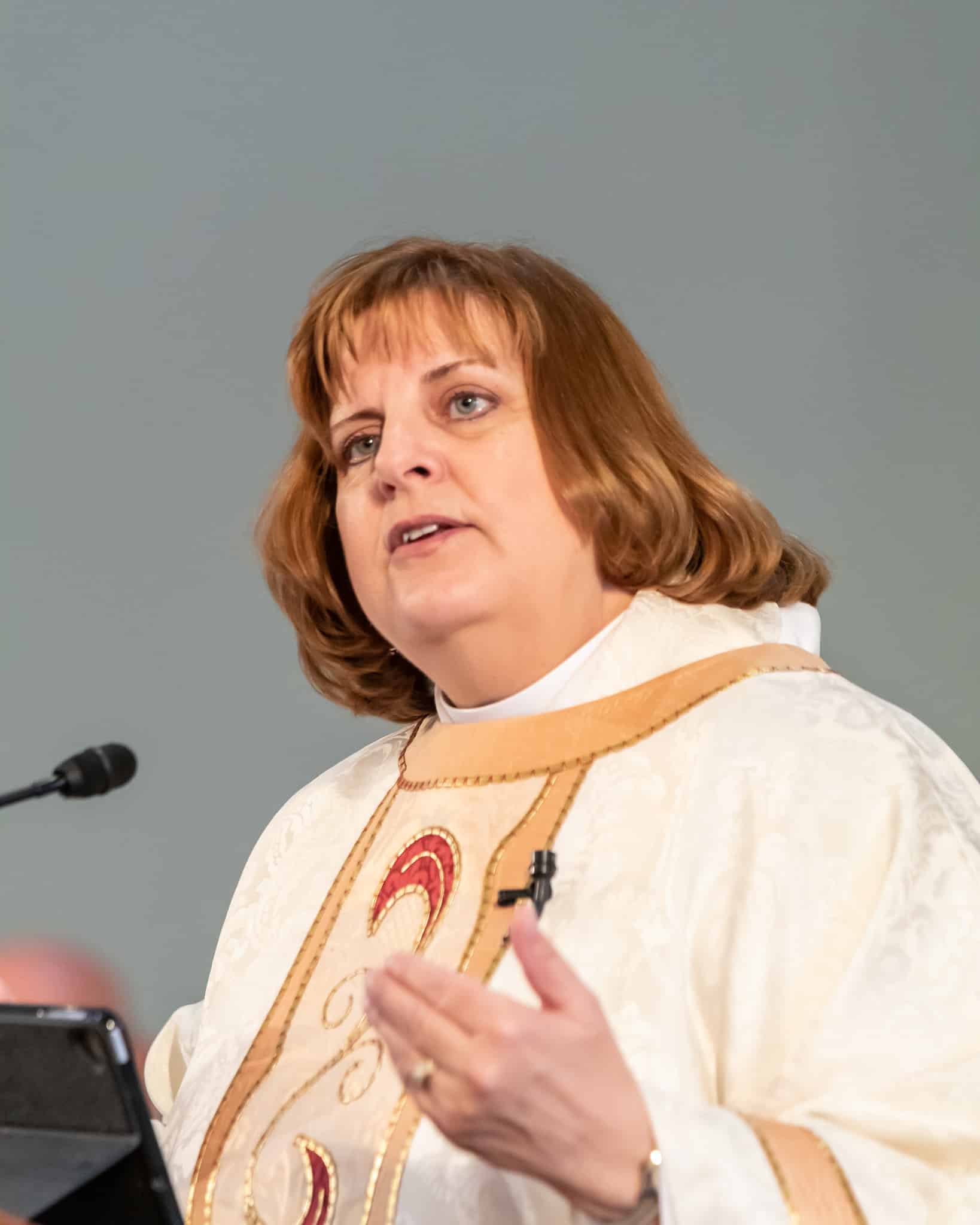Update: Bishop Susan Brown Snook Title IV complaint dismissed, appeal pending
Recently, we covered the Title IV clergy disciplinary complaint filed against San Diego Bishop Susan Brown Snook. Today’s post is an update on that situation.
Sources close to the matter tell Anglican Watch that the intake officer for bishops, the Rev. Barb Kempf, dismissed the matter. An appeal appears imminent.
But there’s more to the story.
TEC violates its canons by refusing to provide a pastoral response
As we have often said, too many judicatories, including Kempf, continue to view Title IV as it was under the older canons, namely adversarial.
But with the wholesale changes to Title IV, the emphasis is on healing, reconciliation, accountability, and forgiveness.
That begs the question: Why not resolve any doubt in favor of moving forward? Aren’t the goals identified above laudable?
Of course, in well-handled Title IV cases, which are regrettably rare, even if a case doesn’t move forward, judicatories may resolve a conflict via a pastoral response — which may include a pastoral direction, telling the respondent to do something, not do something, or change problematic behavior.
But in Kempf’s case, she does not provide a pastoral response. While we understand that she is attempting to marshall resources to fulfill this canonical obligation/priority — and we appreciate her efforts — this doesn’t solve the near-term problem.
Specifically, in a denomination with an approximately $48 million annual budget and enormous cash reserves, are we really supposed to be okay with ignoring the canonical requirement to care for those hurt by the church? Isn’t care for the Body of Christ inherently central to the church’s mission?
Moreover, even as tiny as the Episcopal Church is, we find it profoundly difficult to believe we cannot identify capable resources willing to donate their time. If nothing else, fewer meetings and more action might well do the trick.
Bishop Susan should act even without a complaint
The old saying about it never being wrong to do right certainly applies in this situation.
In other words, nothing prevents Bishop Susan from cleaning up this mess, regardless of the status of the Title IV case. And in some ways, her failure to grab the bull by the horns is more concerning than the slow-motion train wreck that is the clergy disciplinary case.
Look at it this way: No matter how we parse it, the Diocese’s actions have hurt others. One may agree or disagree over the details, but there is trauma afoot, regardless. Why not put aside preconceived notions, forget about being defensive, assume good intent, and discuss the situation with those affected while believing that persons of goodwill can resolve this situation?
Thus, our fond hope is that Bishop Susan will take this opportunity to repair the church and strengthen the saints versus letting this situation drift aimlessly. Moreover, conflict ignored is conflict multiplied.
Things may not be going well for Barb Kempf
For the record, you couldn’t pay anyone here at Anglican Watch enough to work in Kempf’s position. There’s a backlog of more than 20 cases, we’ve seen no progress in the issues involving corrupt Dallas Bishop George Sumner, and there’s zero gratitude on any front. Not to mention, there are knuckleheads like retired Southern Virginia bishop Holly Hollerith who want to use Kempf to offload the hot potatoes that come their way.
That said, Anglican Watch has received reports that Kempf is facing her own clergy discipline complaints for failing to honor church canons requiring a pastoral response. To that, we say, “Good!”
While we recognize that the church has never bothered to implement a pastoral response team, we are pretty sure that Kempf could scare up resources if so inclined. Indeed, we would gladly run requests for needed volunteer resources if asked to do so.
So, we’re not sanguine about Barb Kempf’s future, and we suspect absent an intervention by incoming presiding bishop Sean Rowe, that Kempf will bail within the next year or so. And that may not be a bad thing–we are pretty sure EthicsPoint or one of the other third-party ethics hotlines could readily develop an independent, contractual solution for Title IV intake. Or a law firm.
Meanwhile., let’s hope Bishop Susan will take the high road and everyone a lot of time and trouble by fixing this goshawful mess on her own. And we remind all involved: A badly handled Title IV case often causes irreparable reputational harm to all involved.
Let’s not mess this situation up.


One of the reasons the Title IV system is dysfunctional is because they are often investigating their own friends and colleagues. If they are not acquainted with the respondents – they are still afforded much empathy by the intake officer and reference panels – because they are all part of the same brotherhood and sisterhood of clergy and bishops.
TEC and all dioceses need to hire outside services to handle intake and to conduct investigations. Utilizing more than one service would ensure that a vendor does not become beholden to TEC as a client.
This kind of conflict and mismanagement of conflict is unfortunately common in church settings. It would seem that church organizations would have training and background in working through conflict and how to support people who have been traumatized. The church often gives misdirected instructions (supposedly based on scripture) to gaslight and manipulate people into silence. Church leaders often shame victims telling them to forgive (but the church takes little or no steps to protect the victims) and the church re-traumatizes the victims with its misapplication of scripture.
“Anglican Watch has received reports that [the Rev. Barbara] Kempf is facing her own clergy discipline complaints for failing to honor church canons requiring a pastoral response.” I’m sorry to hear this. It should be noted that any pastoral ministry for those involved in a Title IV process for Bishops is the responsibility of the Presiding Bishop with frequent use of the word “may.” If memory serves me correctly, one of the changes adopted by GC 2024 will separate the function of an Intake Officer from offering pastoral care due to the obvious conflict of interest.
The Rev. Nathaniel Pierce
I appreciate your comment.
My sense is that there is a huge amount of frustration over this topic, including the lack of a pastoral response in the Marray case.
So while the complainants who are trying to zing Barb Kempf may be pointed in the wrong direction, perhaps the conclusion is that the hierarchy needs to do better at caring for our own.
If nothing else, the Title IV website, instead of its current description of a pastoral response, potentially should be amended. Here’s what it says now, which strikes me as, at best, aspirational:
“Pastoral Response is a vital component of Title IV. It is one of the first priorities to accompany all phases of the process for all participants. The canonical requirement for Pastoral Response is one of the important differences between past disciplinary processes and Title IV.“
https://www.titleiv.org/general-education-and-best-practices/pastoral-response
Thoughts?
~Eric B.
I agree with your comments. A pastoral response for “all involved or affected” is the mandated goal. Perhaps that was implemented for the Respondent but only offered to the 14 Complainants in our situation after twelve months had passed. We can and should do better. I can report that the powers that be are aware of the problem and, I believe, will take steps in the near future to improve that aspect of the process. From the outside it looks simple but it really isn’t.
I would not change the current wording on the Title IV website. Instead, let’s work on implementing what it actually says. We could begin by identifying a group of people who could be recommended on a moment’s notice to serve immediately as a provider of pastoral care to Respondents and Complainants — the PPC Corps if you will.
There are too many problems in the Title IV process to account in the space allotted. First and foremost is that in too many dioceses, the “intake officer” is a fellow cleric who probably knows the accused and would see him (her) at diocesan meetings. That is not a neutral in the process. Second, there is a lack of uniformity in the appellate process, if the “intake officer” denies the complaint or finds “lack of probable cause.” Then each diocese has a different format for appeal: review panel, board of inquiry, whatever, and the report, if any, is not required to be disclosed to the complainant. Finally, there is no appeal above the diocesan level to a national (or intermediate) body of competent jurists who are empowered to overrule whatever is done at the diocesan level (there is some reference to “synods” wtf they are, but they are ineffectual in the process). Years ago, a mentally challenged, physically weak and morally compromised bishop (now thankfully retired, although his successors have done their best to screw things up even further) took some pride in the “fact” that the same “Framers” who drafted the US Constitution also drafted the constitution for the Protestant Episcopal Church in the United States of America. That is bogus. Unlike the US Constitution, the PECUSA constitution does not have an independent judiciary, which is the hallmark of any mature legal system. Whatever “judiciary” that PECUSA has is composed of bishops who have their eyes on the burse, and not the rights of congregants. The judiciary must be free to enter orders against the “sovereign,” i.e., the institutional church which has been so feckless in disciplining clerics who lie, cheat or steal. A pox on all their houses.